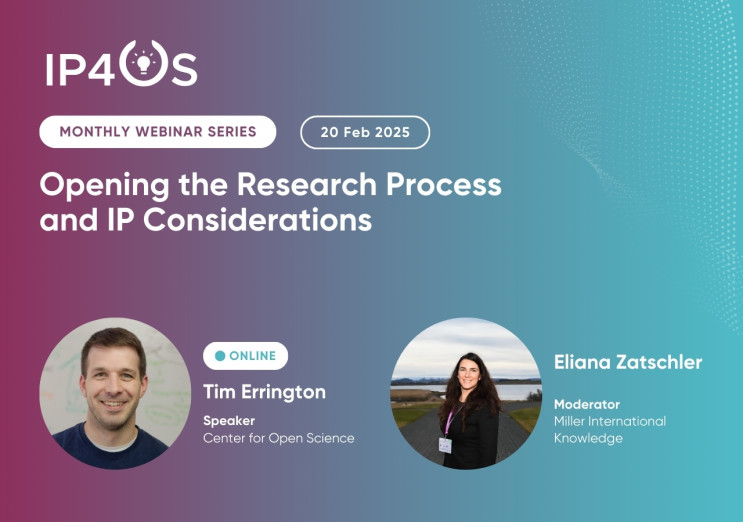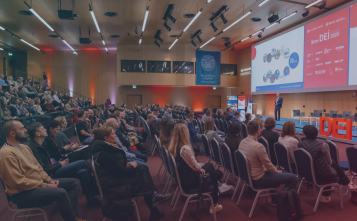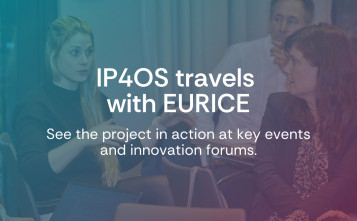
Opening the research process and IP considerations
The third webinar in the IP4OS 2025–2026 series, organised by Miller International Knowledge, brought together leading voices at the intersection of intellectual property (IP) and open science. As part of a monthly effort to bridge these two evolving domains, the session aimed to shed light on how openness in research can be fostered without compromising IP protections. Moderated by Eliana Zatschler, the webinar featured a keynote by Tim Errington, Senior Director of Research at the Center for Open Science.
Tim Errington opened the session by sharing insights into the mission of the Center for Open Science, a U.S.-based organisation promoting openness, integrity, and reproducibility in scientific research. He highlighted the value of open science for increasing transparency and trust, while also acknowledging the practical and legal tensions this may cause, particularly regarding intellectual property. His talk offered a thoughtful exploration of how scientific communities can balance open practices with the need to protect innovations, emphasizing that this is as much a cultural shift as it is a technical or legal one.
By examining both the benefits and potential drawbacks of open science, Errington encouraged participants to think critically about how openness can coexist with IP frameworks. He argued that research institutions and funders must reconsider how success is measured and incentivized to truly embed openness into scientific workflows, without stifling innovation or legal protection. This framing set the tone for a dynamic discussion on the strategic and ethical considerations shaping research in the digital age.

